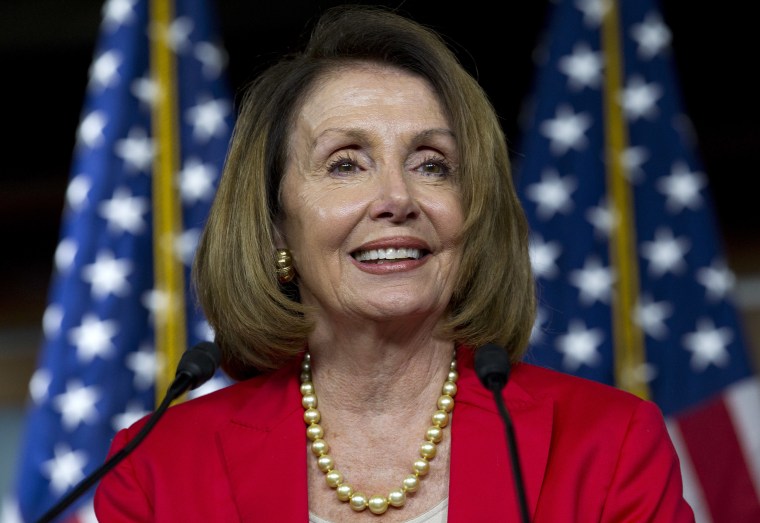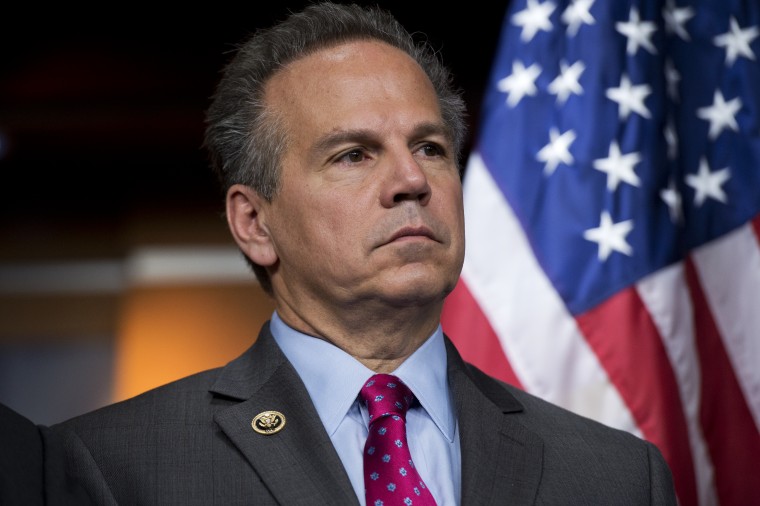Two weeks before the 2018 midterm elections, House Democrats are making a last-minute pitch to LGBTQ and progressive voters: Put us in the majority, and we will pass the Equality Act.
The Equality Act of 2017, which has over 200 sponsors, would explicitly add sexual orientation and gender identity to the Civil Rights Act of 1964 — which currently bans discrimination based on race, color, sex, religion and national origin.
In a speech last week at Harvard University’s Kennedy School of Government, House Minority Leader Nancy Pelosi, D-Calif., promised that passage of the Equality Act would be a top priority for a Democratic House majority.

The bill would be given a number between one and 10, indicating it is one of the top 10 legislative priorities for the governing party, according to the Washington Blade. Pelosi said campaign finance reform would be House Resolution 1, or HR1, according to the Harvard Gazette.
Pelosi’s promise was made more urgent after The New York Times reported on Sunday that the Trump administration is considering reversing an Obama-era legal interpretation that the 1964 Civil Rights Act's ban on “sex” discrimination also bans discrimination based on sexual orientation and gender identity.
“If the Equality Act were passed and if it were law today, the president’s regulation, or proposed regulation, would be illegal, because it would be discrimination against the trans community,” Rep. David Cicilline, D-R.I., who is the bill’s main sponsor and is openly gay, told NBC News.

The 2017 bill is a response to a growing conservative legal effort to establish “religious liberty” laws that would allow businesses and others to refuse service to LGBTQ people, according to David Stacy, government affairs director for the Human Rights Campaign, a national LGBTQ advocacy group. The Equality Act, he added, is part of a multi-pronged effort by LGBTQ rights advocates to end legal discrimination against lesbian, gay, bisexual, transgender and queer people across the country.
The goal of the bill, according to Cicilline, is to have “one national standard” when it comes to LGBTQ rights and discrimination protections in the U.S.
“Anywhere you go in the country, you should be able to live your life and travel and have all of the protections you would have anywhere else in the country,” he said.
"The Equality Act is the opportunity for Congress to catch up to the country and make certain once and for all people from the LGBT community cannot be discriminated against in education, public accommodation, employment, housing, credit or jury service."
The biggest challenge of passing the Equality Act, Cicilline added, is that “most Americans think it’s already the law.”
“Equality is a founding value of America,” he said. “When you tell people that in the majority of states in this country you can be fired from your job, be kicked out of your apartment, denied service in a restaurant … [for being] a member of the LGBTQ community and that there’s no protection from that, you know most people are stunned.”
At a Denver campaign meet-and-greet with LGBTQ young professionals, Rep. Jared Polis, D-Colo., an Equality Act co-sponsor and the state's Democratic nominee for governor, spoke of the bill’s importance.
“Until we have the Equality Act in place, in many states it is still legal to fire someone because of their sexual orientation or gender identity,” Polis, who is openly gay, explained.
Currently, Stacy said, the U.S. has a “patchwork of protections” across the country when it comes to lesbian, gay, bisexual, transgender and queer people.
“[We have] some states, like Minnesota, which has had comprehensive discrimination protections since 1992, and then you have states that have no protections whatsoever, like Georgia, Alabama, Texas, where it’s really just the degree to which the federal government is enforcing sex discrimination protections to protect LGBTQ people,” Stacy explained.
He added that six federal courts have ruled that gender identity discrimination is a form of “sex” discrimination under Title VII of the Civil Rights Act, and the Equal Employment Opportunity Commission (EEOC) interprets sex discrimination to include discrimination on the basis of sexual orientation and gender identity.
The Department of Justice, however, disagrees. In October of last year, Attorney General Jeff Sessions announced in a memo that the department’s new legal interpretation of the statute is that it does not bar discrimination against transgender people.
“Although federal law, including Title VII, provides various protections to transgender individuals, Title VII does not prohibit discrimination based on gender identity per se," said the memo.
All of this adds up to an incongruous legal landscape for LGBTQ people in America. The Supreme Court is expected at some point to rule on whether the Civil Rights Act’s ban on sex discrimination includes discrimination based on one’s sexual orientation or gender identity, but it is not a given — and even if they do take up the case, it is unclear how they would rule, according to Stacy.
“If we are successful in that legal strategy, we won’t need part of the Equality Act,” Stacy said of the Supreme Court deciding on an inclusive definition of “sex” discrimination.
But if the Supreme Court fails to take the case or rules against an inclusive definition of "sex" discrimination, that leaves a patchwork of precedent across the country, where LGBTQ people can be denied service for who they are in some places, like Texas, but not others, like Minnesota. That’s where the Equality Act comes in, according to its proponents.
“The Equality Act is the opportunity for Congress to catch up to the country and make certain once and for all people from the LGBT community cannot be discriminated against in education, public accommodation, employment, housing, credit or jury service,” Cicilline said.
A 2015 survey of 42,000 people across the U.S. conducted by the nonpartisan Public Religion Research Institute found 70 percent of Americans — including a majority of Democrats, Republicans and independents — would support a bill, like the Equality Act, that would protect LGBTQ people from discrimination in jobs, housing and public accommodations.
But if the Democrats don’t take back the House, as they hope to do on Nov. 6, is there a chance for the Equality Act to become a reality in the next Congress?
Ciciline said he has tried to work with House Speaker Paul Ryan, R-Wis., to bring the bill to the floor for a vote, but he would not budge. Aside from two GOP co-sponsors, he added, “we haven’t seen any indication that our Republican colleagues are prepared to work with us to pass the Equality Act.”
A spokesperson for Ryan declined to comment on Cicilline's assertion regarding the Equality Act, and the office of House Majority Leader Kevin McCarthy, R-Calif., did not immediately respond to a request for comment.
Correction: A previous version of this story misnamed the Human Rights Campaign's government affairs director. His name is David Stacy, not Chris Johnson.


